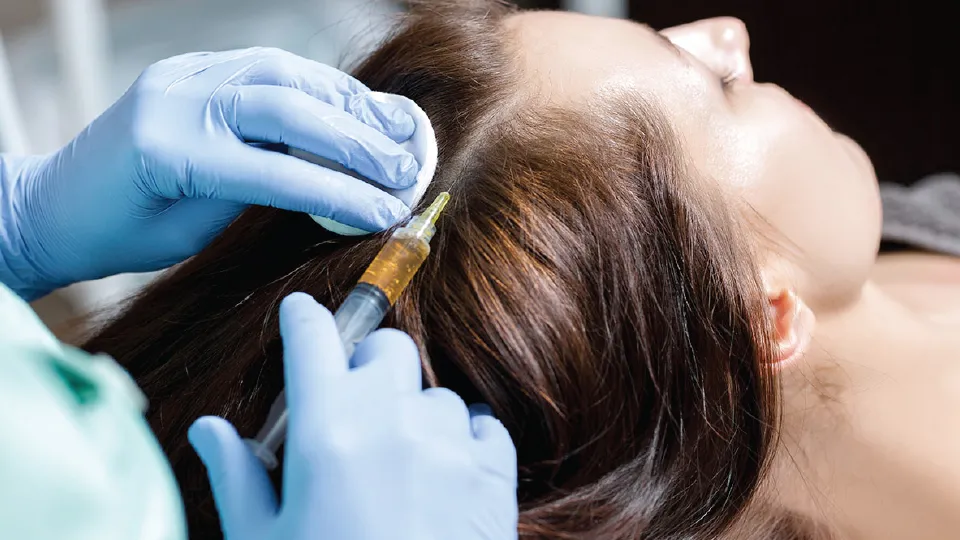Revolutionizing Skin Care: Botox, PRP, and Acne Treatments Unveiled
The landscape of skincare and dermatology has undergone significant transformations with the advent of advanced treatments like Botox, PRP (Platelet-Rich Plasma...

Platelet-Rich Plasma (PRP) treatment has become a popular non-surgical therapeutic option for various conditions, especially in orthopedics, dermatology, and cosmetic medicine. While it is considered relatively safe due to its autologous nature (using the patient's own blood), it is crucial to understand that, like any medical procedure, PRP treatment can have potential side effects. This detailed discussion aims to shed light on the side effects associated with PRP treatment, particularly for those considering PRP treatment in Noida or any other region.
Understanding PRP Treatment: PRP treatment involves extracting a small amount of the patient's blood, processing it to concentrate platelets and growth factors, and then injecting this concentrated solution into the affected area. The high concentration of growth factors in PRP is believed to stimulate and enhance the body's natural healing processes.
Common Applications of PRP:
Orthopedics: For treating joint and tendon injuries and to expedite the healing of musculoskeletal injuries.
Dermatology and Cosmetic Medicine: In procedures like hair regrowth treatment, facial rejuvenation, and acne scars.
Sports Medicine: To treat sports-related injuries and to speed up recovery times.
Potential Side Effects of PRP Treatment:
Infection Risk: Though the risk is minimal due to the autologous nature of PRP, any procedure involving injections carries a small risk of infection. Strict aseptic techniques can minimize this risk.
Injury to Blood Vessels or Nerves: Incorrect needle placement can potentially damage blood vessels or nerves in the injection area, leading to pain, bleeding, or even nerve impairment.
Allergic Reaction: While rare, allergic reactions can occur, especially in response to substances used during the procedure, like anticoagulants added to the blood.
Pain at the Injection Site: It's common to experience mild to moderate pain or discomfort at the site of injection. This usually subsides within a few days.
Inflammation and Swelling: The injection of PRP can lead to an inflammatory response, which is part of the healing process but can result in temporary swelling and redness.
Tissue Damage: There's a slight risk that the injection could cause tissue damage or exacerbate the existing condition, although this is rare.
Scar Tissue Formation: Any procedure that involves injections has a risk of scar tissue formation, although with PRP, this risk is considered low.
No Improvement: There's a possibility that PRP treatment might not provide the desired outcomes or improvement in the condition being treated.
Mitigating the Risks: To minimize the risks associated with PRP treatment, it is crucial to:
Choose a qualified and experienced practitioner, especially if seeking PRP treatment in Noida or any other specific location. Ensure the clinic follows stringent hygiene and safety protocols.
Discuss your complete medical history, allergies, and medications with your healthcare provider to avoid adverse reactions.
Follow post-procedure care instructions provided by your healthcare provider to reduce the risk of infection and other complications.
Aftercare and Recovery: Post-treatment care is crucial for minimizing side effects and enhancing the treatment's effectiveness. Patients are generally advised to avoid strenuous activities for a short period after the procedure. Applying ice packs can help reduce swelling and discomfort. It's also essential to maintain communication with your healthcare provider and report any unusual or persistent side effects.
Conclusion: PRP treatment offers a promising avenue for managing various conditions, leveraging the body's healing mechanisms. While it is generally safe, being well-informed about the potential side effects and how to mitigate them is crucial for anyone considering this treatment. If you're exploring PRP treatment in Noida, ensure you consult with healthcare professionals who are well-versed in delivering PRP therapy and can provide you with personalized advice based on your specific health needs and concerns. Remember, the success of PRP treatment, like any medical procedure, depends on the expertise of the practitioner, the patient's health condition, and adherence to aftercare protocols.
Partager cet article